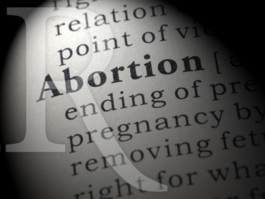2012 Gubernatorial Update: Republicans Aim For Their High-Water Mark
A Commentary By Geoffrey Skelley
A record-tying year could be in store for Republicans in 2012. No, we’re not talking about Mitt Romney -- even if he wins, Romney will not equal Richard Nixon’s 60.7% popular vote share in 1972 or Ronald Reagan’s 525 electoral votes in 1984. Rather, Republicans can tie a record in another category: the number of state governorships the party has held at one time.
During its history, the high-water mark for the GOP was 34 in 1921-22, a figure that they could conceivably match after 2012’s gubernatorial elections.
Republicans currently hold 29 governor’s mansions across the country; in order to match their all-time total, Republicans need to win five of the eight governorships currently held by Democrats up for grabs this November.
Of the 11 contests -- the lion’s share of gubernatorial races are held in midterm years -- three are already held by Republicans, and the Crystal Ball rates all three as likely or safe Republican. Of the eight posts held by Democrats, we now rate only three of the races as likely or safe Democratic. The other five could end up being pretty competitive, and if they break for the Republicans, the GOP could be in a dominant position in the nation’s state governments.
While not a sure win, we now believe that the North Carolina contest is likely Republican, favoring former Charlotte mayor Pat McCrory (R) over Lt. Gov. Walter Dalton (D). So that’s one down, four to go.
Next up are three toss-up races. Obviously, winning every toss-up battle is difficult, but it can be done. The contests in Montana, New Hampshire and Washington are all up for grabs, so let’s say for the sake of argument that the GOP manages to carry all three, an outcome that becomes more likely should Mitt Romney win the presidential election.
The final piece of the puzzle is West Virginia, which we rate leans Democratic in favor of Gov. Earl Ray Tomblin. If Romney wins the Mountain State by a large enough margin, he could provide businessman Bill Maloney (R) enough help from his coattails to unseat Tomblin. But even if Republicans can’t win West Virginia to tie the all-time record, winning North Carolina, Montana, New Hampshire and Washington would give the party a new post-World War II high-water mark of 33 governorships, besting the previous mark of 32 in 1998.
One common thread is that the presidential race should loom large in gubernatorial results. With a political climate where ticket-splitting is less and less common, the performance of a presidential candidate can greatly aid or harm his party's candidates down the ballot. This cycle, the Republican candidate in Democratic-friendly Washington, state Attorney General Rob McKenna, may lose because President Obama could provide enough of a windfall for a fellow Democrat, ex-Rep. Jay Inslee, to win. At the same time, Tomblin could lose if Romney wins West Virginia by such a large margin that it drowns out the cross-over vote Tomblin must win in order to survive. In Inslee's case, he could benefit from "positive coattails"; in Tomblin's case, he must fight "negative coattails."
Since our previous review of these races in December, we have changed the ratings for two contests, Montana and North Carolina. Below, we analyze each of these matchups as well as the rest of the 11 gubernatorial races in 2012.
Chart 1: Crystal Ball gubernatorial rating changes
Chart 2: Updated 2012 Crystal Ball gubernatorial race ratings
| State | Incumbent | Possible Primary Challengers | Major Party Opposition | Party Rating |
|---|---|---|---|---|
| DE |
Jack Markell (Running) |
-Businessman Jeff Cragg | Safe D | |
| IN |
Mitch Daniels (Term-limited) |
- Rep. Mike Pence | - Ex-IN House Speaker John Gregg | Likely R |
| MO |
Jay Nixon (Running) |
- Packaging executive Dave Spence - Businessman Bill Randles - Pro-life activist Fred Sauer |
Likely D | |
| MT |
Brian Schweitzer (Term-limited) |
- AG Steve Bullock | - Ex-Rep. Rick Hill | Toss-up |
| NC |
Beverly Perdue (Retiring) |
- LG Walter Dalton | - 2008 Gov. nominee Pat McCrory | Likely R |
| ND |
Jack Dalrymple (Running) |
- State Sen. Min. Leader Ryan Taylor | Safe R | |
| NH |
John Lynch (Retiring) |
-Ex-state Sen. Maggie Hassan - Ex-state Sen. Jackie Cilley - Air Force veteran Bill Kennedy |
- 2010 Sen. candidate Ovide Lamontagne - Conservative activist Kevin Smith |
Toss-up |
| UT |
Gary Herbert (Running) |
- Ret. Gen. Peter Cooke | Safe R | |
| VT |
Peter Shumlin (Running) |
- State Sen. Randy Brock | Safe D | |
| WA |
Christine Gregoire (Retiring) |
- Ex-Rep. Jay Inslee | - AG Rob McKenna | Toss-up |
| WV |
Earl Ray Tomblin (Running) |
- Businessman Bill Maloney | Leans D |
Delaware — Gov. Jack Markell (D) remains a heavy favorite to win reelection over his likely opponent, businessman Jeff Cragg (R). Markell began the year with more cash-on-hand than any previous governor in the First State, and he will have help from Obama’s coattails in what is a safely Democratic state at the presidential level. SAFE DEMOCRATIC
Indiana — Former state House speaker John Gregg (D) is discovering that having a well-known mustache does not necessarily provide electoral strength; he’s a decided underdog against Rep. Mike Pence (R). There are three reasons Pence is favored: First, the most recent polling, albeit from the end of March, showed Pence leading Gregg by double-digits. Second, Obama is probably not going to win Indiana again, so Pence may get help from Romney’s coattails. Third, while Gregg is probably as strong a candidate as Democrats could hope for, Pence is an equally strong, if not more credentialed, candidate. LIKELY REPUBLICAN
Missouri — Increasingly, it looks like Gov. Jay Nixon (D) will have to overcome negative coattails in November. The Crystal Ball currently rates the Show Me State as leans Republican at the presidential level, meaning that Nixon will need to outperform Obama to keep his job. Luckily for Nixon, he is fairly well-liked, with an early June Rasmussen poll finding his approval-disapproval at 54% to 41%. The incumbent has a great deal of crossover appeal: as just one small example, the Missouri Soybean Association, which typically backs Republicans, recently endorsed Nixon’s reelection bid. On the other side, businessman Dave Spence (R) appears to be the frontrunner in the Aug. 7 GOP primary. A late May head-to-head poll found Nixon leading Spence by double digits so it appears, for now, that Nixon is well positioned to win reelection. LIKELY DEMOCRATIC
Montana — Following the June 5 primary, both parties have their nominees: In the GOP primary, former Rep. Rick Hill bested a crowded field with 34% of the vote; on the other side, state Attorney General Steve Bullock (D) beat no-name opposition to win the Democratic nod. The general election starts off as a coin flip: A Public Policy Polling survey in early May found Bullock and Hill in a dead heat at 39% apiece. The dynamics of this race come down to two factors: favorability and coattails. Bullock is a fairly popular statewide official who can link himself to popular term-limited Gov. Brian Schweitzer (D). But Hill, who won two statewide elections for Montana’s at-large House seat in the 1990s, can count on Romney winning the state in the fall, which should help him to some degree. The all-important question is: By how much can Bullock outperform Obama on Nov. 6? With the answer to that question far from certain, we are shifting our rating for this contest to TOSS-UP. While Montana should be a cinch for Romney in the presidential race, it might feature two of the nation’s closest races for governor and for U.S. Senate.
North Carolina — One-term Gov. Bev Perdue’s decision to retire was intended to buoy Democratic chances, but it looks increasingly likely that Republicans will capture the governorship in the Tar Heel State regardless. Former Charlotte mayor Pat McCrory (R), who lost to Perdue in 2008, has consistently polled ahead of his Democratic opponent, Lt. Gov. Walter Dalton, with a recent poll showing McCrory up 47% to 40%. Besides polling, there are a number of reasons for McCrory to feel confident. First, the Crystal Ball sees Romney as a slight favorite to win North Carolina in November, meaning Dalton will have to outperform Obama to win. But perhaps the likelier outcome is that McCrory will outperform Romney. Second, while Perdue is retiring, Dalton is a part of her unpopular administration. PPP recently pegged Perdue’s disapproval at a dismal 59%, so expect McCrory to spend ample resources tying Dalton to the unpopular incumbent. Lastly, the state Democratic organization is in disarray over a sexual harassment case involving its party leadership. LIKELY REPUBLICAN
North Dakota – Money doesn’t necessarily win elections, but it definitely helps: At the beginning of June, Gov. Jack Dalrymple (R) had about a $1.3 million to $300,000 fundraising edge over his opponent, state Senate Minority Leader Ryan Taylor (D). Considering this is the sparsely-populated Peace Garden State, that kind of money can buy a whole lot of ads. Dalrymple, who became governor when then-Gov. John Hoeven (R) won the state’s open Senate seat in 2010, is seeking a full term of his own. Given that Romney should win the state by at least 10 percentage points, it’s hard to see Dalrymple losing this one, and the action in the state seems focused on the competitive U.S. Senate race and also, potentially, its open statewide U.S. House seat. SAFE REPUBLICAN
New Hampshire – After four two-year terms, Gov. John Lynch (D) is hanging up his spurs, and the question of who will take his place is completely up in the air. The Republican side of the equation is relatively clear — 1996 gubernatorial nominee and 2010 Senate candidate Ovide Lamontagne, who received heavy backing from Tea Partiers in 2010, is polling well ahead of his rival for the nomination, ex-state Rep. Kevin Smith. As for the Democrats, ex-state Sen. Jackie Cilley and former state Senate Majority Leader Maggie Hassan are locked in a close race with a very large number of undecideds. Cilley recently fired up Democrats by saying she wouldn’t pledge to veto an income or sales tax (Hassan said she would, in accordance with Granite State tradition). With a late primary (Sept. 11), it will be a while before we know the final matchup. Polling has found Lamontagne slightly ahead of both Democrats, but his edge may come in part because of higher name recognition from his previous statewide efforts. With so many unknowns, we rate this race a TOSS-UP.
Utah — Incumbent Gov. Gary Herbert (R) is an overwhelming favorite to win his first full term, having won a special election in 2010 to serve out the rest of former Gov. Jon Huntsman’s (R) time in office. Herbert, who has overcome challenges from his right, faces off against retired Army Gen. Peter Cooke (D). An April poll found Herbert up 65% to 27% over Cooke, and given the expected high turnout among conservative Mormons for Romney in November, this one is almost certainly in the bag for Republicans. SAFE REPUBLICAN
Vermont — To win reelection, all Gov. Peter Shumlin (D) probably needs to do is stay away from bears. Although he still needs to work on avoiding wild animals, Shumlin appears a safe bet to win in November, as a late May poll found him leading the likely GOP nominee, state Sen. Randy Brock, 60% to 27%. Moreover, Obama should carry Vermont by a massive margin again, so it’s hard to see Shumlin — who narrowly won his first two-year term in 2010 — losing. SAFE DEMOCRATIC
Washington – For the first time since 2000, Washingtonians will get a chance to vote for someone besides Gov. Christine Gregoire (D) or 2004 and 2008 loser Dino Rossi (R) for governor. Gregoire has chosen to not seek another term, leaving the seat open for a high-stakes battle between state Attorney General Rob McKenna (R) and former U.S. Rep. Jay Inslee (D). Most polling has given McKenna a slight edge thus far, and the conventional wisdom says he’s about the strongest candidate Republicans could have mustered in the Democratic-friendly Evergreen State. If anything, Democratic fatigue at the state level might finally help a Republican win the governorship: The GOP has not won a gubernatorial election in Washington since 1980. Still, Inslee may get coattails assistance from Obama in November because the president is almost certain to carry the state. Much like Montana is a question of a Democrat overperforming his party’s presidential nominee, Washington is a question of whether the Republican can do the same. TOSS-UP
West Virginia — Wisconsin’s recently decided recall election is not the only gubernatorial rematch this year. Businessman Bill Maloney (R) is hoping to fare better this November than he did last year, when he narrowly lost the state’s 2011 gubernatorial special election to now-Gov. Earl Ray Tomblin (D). Now Republicans are hoping that Romney’s presidential coattails will tip the scales to them in the Mountain State’s gubernatorial race. Although West Virginia still has a strong conservative Democratic organization led by Sen. Joe Manchin, the problem for Tomblin is that Obama is so disliked in the state (in 2008, he only won 42.5% in a state Bill Clinton won twice and Michael Dukakis carried in 1988) that Democrats may pay the price for having the same letter “D” by their name on the ballot. Fearing this, Manchin, Tomblin and the state’s lone Democratic U.S. House member, Nick Rahall, have opted not to attend the Democratic National Convention in Charlotte in an effort to further separate themselves from Obama. While Tomblin still has the edge here, he’s not as popular or as well-known as Manchin, and the impact of the presidential race could start to show in the polls. LEANS DEMOCRATIC
Geoffrey Skelley is a political analyst for Center for Politics at the University of Virginia.
See Other Commentary by Geoffrey Skelley
See Other Commentary by Larry Sabato
See Other Political Commentary
Views expressed in this column are those of the author, not those of Rasmussen Reports. Comments about this content should be directed to the author.
Rasmussen Reports is a media company specializing in the collection, publication and distribution of public opinion information.
We conduct public opinion polls on a variety of topics to inform our audience on events in the news and other topics of interest. To ensure editorial control and independence, we pay for the polls ourselves and generate revenue through the sale of subscriptions, sponsorships, and advertising. Nightly polling on politics, business and lifestyle topics provides the content to update the Rasmussen Reports web site many times each day. If it's in the news, it's in our polls. Additionally, the data drives a daily update newsletter and various media outlets across the country.
Some information, including the Rasmussen Reports daily Presidential Tracking Poll and commentaries are available for free to the general public. Subscriptions are available for $4.95 a month or 34.95 a year that provide subscribers with exclusive access to more than 20 stories per week on upcoming elections, consumer confidence, and issues that affect us all. For those who are really into the numbers, Platinum Members can review demographic crosstabs and a full history of our data.
To learn more about our methodology, click here.




